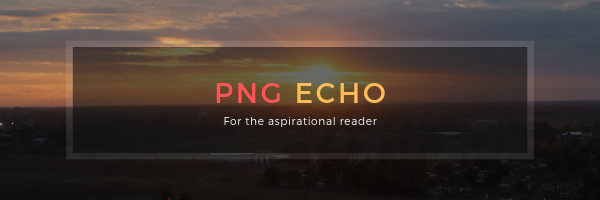By PNG Echo
This week there has been two separate innovations mooted to regulate social media by the government and its agencies.

Firstly, the Office of the Censorship Board is talking of introducing an ‘internet filtering system’ to control illegal use of the internet that is said to be “rampant at the moment.” (Post Courier).
Robroy Chicki who is the principal adviser on mass media with the Censorship Office has said the system is aimed at creating “… a holistic partnership approach to uphold the morale [sic] standings in the society.”
As such, the main target of the Censorship Office will primarily be blocking pornographic material in all its forms, while it is also envisaged that the system will be a deterrent to organized crime, including making it more difficult to launder corrupt monies.

Not to be outdone, in the office of the Minister for Communications, Jimmy Miringtoro, a Media Appeals Tribunal is being proposed.
It will target, particularly, the abuse in social media, establishing a means of redress for those “helpless victims” who have suffered defamation and damage at what is seen as a medium that has been, up until now, both uncontrollable and uncensored.
While the Censorship Board has recognized that the filtering system will have limited success in stopping all illicit material online, Minister Miringtoro has voiced his own suspicions that his proposal may be seen as government interference. However, he says that it must be balanced against individuals’ right to privacy and human dignity that is being eroded by the “gross abuse” of social media.
The Censorship Office’s measure is a pre-emptive strike on internet abuse – in order to stop it, while the Minister is proposing a means of redress for the abused after the fact.
And while the former has caused nary a flutter, not so the proposed Media Appeals Tribunal.
The backlash

One of the loudest protesters has been the Media Council of Papua New Guinea who is arguing for self-regulation overseen by them – for the aggrieved to seek recourse “…under the auspices of the council’s structure.”
They fear that the government is setting a dangerous precedent whereby politicians could determine and influence news in PNG.
But when one of their arguments is that “…Papua New Guinea is… free from State-sponsored censorship of any form and kind…” it gets hard to take them seriously. What do they suppose the Censorship Board does and to whom do they think the Board answers?
Besides, if they feel it is their role to oversee self-regulation what’s been stopping them thus far?
Why have they maintained their silence through social media abuses that include, death threats, cyber-bullying, character assassination (using the foulest of language), mockery, ridicule and blatant defamation and distribution of lies?
Why have they not condemned this? Do they really believe that this is what the constitution meant by freedom of expression?
Do they think that the lives and reputations that have been ruined to guarantee that some bored person behind a keyboard can vent his spleen is not worth even remarking upon?
The Media Council talks about the peoples’ right to criticize government and the good that can arise from this but what good arises from media that has, as their focus: a Minister’s missing tooth here, a political commentator’s photograph defaced there, here some subjudice contempt, there some publishing of private correspondence without the owners permission (often by people who should know better) everywhere an oink oink (and other more unpleasant four-letter words.)

In fact, had the Media Council spoken out when the Prime Minister had two supposed anti-corruption fighters charged with defamation or when Facebook sites emerged that threw down the gauntlet to the government using the mask ‘anonymous’ and blatantly avowing that they would spread any rumour, publish any half-truth and have dared the government to stop them, then the proposed regulation may not have been necessary.
What did they expect? What did these ethically-challenged keyboard warriors expect? Did they think that their actions should have no consequences?
That’s unrealistic. Life’s not like that.
And while the Media Council branded the proposed move by the Minister as ‘draconian’, I suggest that PNG may be getting off lightly as the Minister said, in the press, that “…the Government was initially thinking about stopping social media…” now that would have been draconian.
Luckily it was rejected for a more moderate measure. Yet had that happened, once again, it would have been the ethically-barren spoiling it for all who use and enjoy social media sensibly and responsibly.
In the balance between freedom of speech and peoples’ right to not be defamed and bullied, the pendulum has swung too far towards the defamers – it’s too late, now only regulation and legislation will have it swinging back to a more neutral position.
To the social media opportunists who think they’ve got away with murder – it’s all your fault.


Where would be the Freedom to Privacy falls in?
Things like privacy are what’s being threatened by all these new regulations and legislation – that’s why it makes me so angry that irresponsible peoples’ abuse causes us all to suffer the consequences of their actions – because there is also no doubt, that the medium cannot go on allowing people to break the law and infringe on peoples’ rights with impunity. It’s a conundrum. But like all laws – there’d be no need for them except for the criminals.